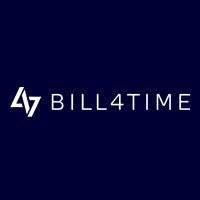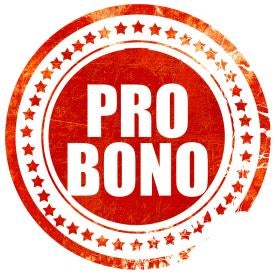


Pro bono work, from the Latin “for the public good,” refers to professional services provided at little to no cost. This work is voluntary and without payment.
The American Bar Association (ABA) encourages lawyers to provide free legal services to people in need. It can be inspiring yet challenging, particularly when it comes to tracking billable hours without actually billing, but reporting pro bono hours is important for ethical purposes.
In addition, you can’t evaluate the impact of pro bono efforts without tracking the time you devote to them.
Pro bono work in the legal profession is the voluntary provision of legal services without a fee — or for a low fee. This work is important in the legal profession to provide equal access to legal services and reinforce lawyers’ commitment to justice, equality, and social responsibility. It’s not about financial gain, but showcasing a lawyer’s dedication to serving the needs of the community.
At its core, pro bono work is altruistic. Lawyers are willing to leverage their legal training and expertise to assist people or organizations with legal problems but limited means to access the legal services they need.
By offering your time and skills pro bono, you can bridge the gap in justice and ensure that vulnerable members of society have a voice and can seek justice. This goes to the ethical standards of the legal profession and improves fairness in society as a whole.
Pro bono work is incredibly important for promoting social responsibility and upholding the ethical standards of the legal profession. It’s a powerful tool for lawyers to actively engage with their communities and address societal issues, including inequity.
When lawyers offer legal expertise free of charge to people who need it, they demonstrate a commitment to the law and social justice, not profit, and reinforce their position as guardians of the rule of law.
Pro bono work also contributes to the ethical standards of the legal industry by promoting equal access to justice that isn’t contingent on someone’s financial means. This ensures that marginalized individuals or communities and nonprofit organizations have a voice in the legal system. It also cultivates a culture of empathy and compassion.
Pro bono work is important because there’s a significant need for it. The system of law depends on equal access to its privileges and protection. Those without means can’t access competent legal representation, putting them at a significant disadvantage with their legal issues.
The ABA doesn’t mandate pro bono work, but it is strongly encouraged. Under Model Rule 6.1, attorneys should aspire to provide at least 50 hours of pro bono services per year, but they’re welcome to do more. Those 50 hours are only a small portion of a lawyer’s total billable hours, but they can be life-altering for the pro bono clients.
The benefits you gain are also remarkable, including advancing your skill set, challenging yourself, and building better teamwork. Pro bono work brings good publicity for a firm as well, which can bring in new clients and attract talent.
For young lawyers, pro bono work is a good opportunity to lead or argue a case that may not be available with paying clients. This is an important part of professional development, especially for young lawyers deciding how to progress in their careers.
Under Model Rule 6.1, lawyers should aspire to 50 hours of pro bono publico legal services per year. The majority of those 50 hours should be without a fee — or expectation of a fee — to a person of limited means or charitable, religious, civic, community, governmental, and educational organizations in matters that address the needs of persons of limited means.
Despite the ABA’s recommendation, individual state bar associations may decide to choose a higher or lower number of hours of pro bono service or a percentage of the lawyer’s professional time. Lawyers may log more or less time from year to year, but the recommendation considers the average hours each year over the course of their career.
Lawyers are permitted to do pro bono work for civil matters or in criminal matters for which there is no government obligation to provide funds for legal representation.
While doing pro bono work, lawyers are expected to behave as they would with any other client, meaning that they must have the necessary skills and competency to handle the case. Lawyers should not expect or receive compensation for their work.
The same ethical standards and professional conduct guidelines apply to pro bono cases as any other cases. They are expected to act in the best interests of the pro bono clients, just like they would for paying clients.
One of the common misconceptions with pro bono work is that it doesn’t require time tracking. While it’s inherently a community service and provided without compensation, it’s important to recognize that time tracking is essential to understanding your time commitment and impact.
Lawyers who engage in pro bono activities commit substantial hours to their cases. Tracking the time ensures accountability and aids in assessing the impact of pro bono efforts by providing key data.
In addition, some organizations or jurisdictions may require reporting of pro bono hours for ethical purposes. Though there may not be any financial transactions, time tracking is a fundamental practice in pro bono work, underscoring its professionalism and dedication to achieving positive social change.
No matter the size of the firm, pro bono case time should always be tracked, as well as the costs incurred. Some law firms may require their associates and paralegals track their pro bono hours and expenses. Tracking time and comparing it to similar cases can be helpful to evaluate efficiency and ensure that lawyers are providing reliable assistance to pro bono clients.
Like any billable time, reporting pro bono time involves a process of documenting and quantifying the hours spent on legal casework and the services that were provided to pro bono clients. It’s common for lawyers to be expected to maintain detailed records of their casework, and pro bono activities are no different. Applicable hours should include the date, type of service, and time spent in the appropriate increments.
Having detailed reports helps with reporting pro bono efforts to any relevant organizations, such as bar associations, legal organizations, or employers. Lawyers and legal staff may need to report their own contributions to managing partners as well.
Legal time tracking software simplifies the reporting process and automates the organization of pro bono hours. With a lower administrative burden on lawyers and legal staff, more time can be spent on the pro bono case or other cases.
With comprehensive software, you can generate detailed reports of pro bono contributions and any associated expenses. This keeps the process streamlined, transparent, and organized.
Legal time tracking software plays a key role in optimizing pro bono work for your law firm. It not only enhances efficiency in time tracking and reporting but promotes accountability and accuracy for your pro bono efforts.
Bill4Time offers a comprehensive solution tailored to the needs of legal professionals. Time tracking is automated and streamlined to reduce manual workloads and ensure precise, error-free records of pro bono hours. All pro bono time can be gathered and documented quickly and easily for any reporting requirements.
Here are some tips to improve your pro bono reporting:
Working pro bono cases is a rewarding part of the legal profession, but there’s work involved in tracking pro bono time and services rendered to understand the impact of your pro bono efforts.
©2006-2024, BILL4TIME. ALL RIGHTS RESERVED.![]()
![]()

![]()
We collaborate with the world's leading lawyers to deliver news tailored for you. Sign Up to receive our free e-Newsbulletins
You are responsible for reading, understanding, and agreeing to the National Law Review's (NLR’s) and the National Law Forum LLC's Terms of Use and Privacy Policy before using the National Law Review website. The National Law Review is a free-to-use, no-log-in database of legal and business articles. The content and links on www.NatLawReview.com are intended for general information purposes only. Any legal analysis, legislative updates, or other content and links should not be construed as legal or professional advice or a substitute for such advice. No attorney-client or confidential relationship is formed by the transmission of information between you and the National Law Review website or any of the law firms, attorneys, or other professionals or organizations who include content on the National Law Review website. If you require legal or professional advice, kindly contact an attorney or other suitable professional advisor.
Some states have laws and ethical rules regarding solicitation and advertisement practices by attorneys and/or other professionals. The National Law Review is not a law firm nor is www.NatLawReview.com intended to be a referral service for attorneys and/or other professionals. The NLR does not wish, nor does it intend, to solicit the business of anyone or to refer anyone to an attorney or other professional. NLR does not answer legal questions nor will we refer you to an attorney or other professional if you request such information from us.
Under certain state laws, the following statements may be required on this website and we have included them in order to be in full compliance with these rules. The choice of a lawyer or other professional is an important decision and should not be based solely upon advertisements. Attorney Advertising Notice: Prior results do not guarantee a similar outcome. Statement in compliance with Texas Rules of Professional Conduct. Unless otherwise noted, attorneys are not certified by the Texas Board of Legal Specialization, nor can NLR attest to the accuracy of any notation of Legal Specialization or other Professional Credentials.
The National Law Review - National Law Forum LLC 2070 Green Bay Rd., Suite 178, Highland Park, IL 60035 Telephone (708) 357-3317 or toll-free (877) 357-3317. If you would like to contact us via email please click here.
Copyright ©2024 National Law Forum, LLC